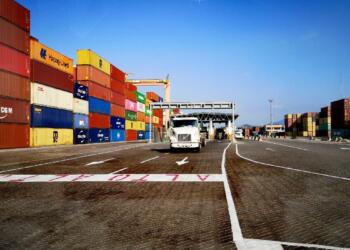
Diversifying suppliers, customers and markets is the key that large companies and small and medium-sized enterprises (SMEs) must take in the face of the tariff uncertainty that the United States has driven and that has spread globally, said Tarsicio González , sales team leader at CIAL Dun & Bradstreet , a company specializing in offering technological solutions and data.
In the webinar Tariffs 2025: How to Navigate Uncertainty , conducted by the firm, he said that 80% of SME sales are focused on a single client and this dependence puts them in a state of vulnerability, when the ideal would be for them to have a “wide range” to handle complicated environments .
Given the uncertainty surrounding external factors such as tariffs, he believed that companies can’t wait and see what happens, because that could put them out of business.
“Beyond remaining with that expectation, we have to find a way to deal with that situation,” the specialist emphasized.
Mexico is the gateway to the United States market, and as the country’s largest trading partner, tariffs have changed the landscape for various businesses, both for large companies and SMEs.
In Mexico and most Latin American countries, he noted, companies lack sufficient information about their suppliers.
In a world dominated by uncertainty, it’s important to know how to find the right data to make the best decisions and measure risks so that companies can achieve profitability with a better outlook, González said.
“If a large company wants to analyze your information and you only have data from what happened during the COVID-19 pandemic, the evaluation won’t be optimal, so it’s important to keep the information up to date,” he noted.
For Tarsicio González, understanding the tariff issue is important, since eight out of every 10 products Mexico sends abroad end up in the United States.
“The value chains leading to the United States are impacted by tariffs, which affects large American retailers and impacts consumers,” he noted.
It’s worth remembering that the protectionist policies promoted by US President Donald Trump are nothing new, as he has used them since his first term to extract political and economic benefits from other countries.
“What we’ve noticed in the markets is that many projects are on hold in case the tariffs are implemented or not. It’s the perfect storm, because many industries are waiting,” said González, who added that this has caused customers in supply chains to seek more economical logistics, as well as more accessible services and raw material suppliers.
Regarding nearshoring , he estimated that Latin America could attract up to $78 billion in investments from the relocation of production lines, and in Mexico’s case, this represents an opportunity to diversify production and find new customers and suppliers.
Comment and follow us on X: @Eliseosfield / @GrupoT21














